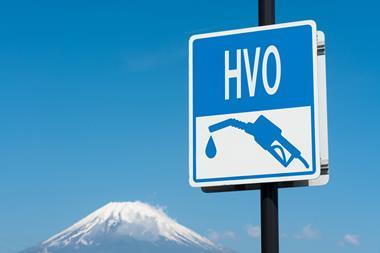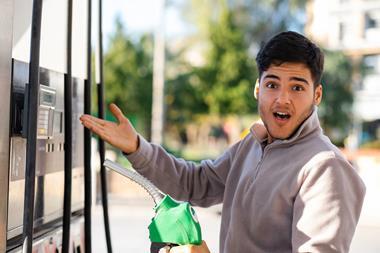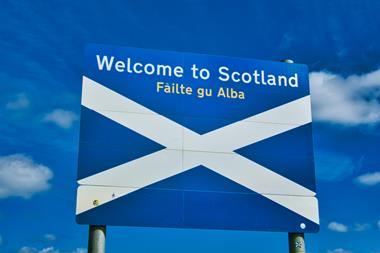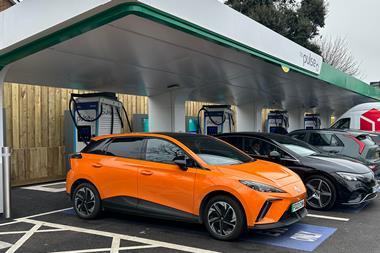For many years the government has turned a deaf ear whenever the PRA and the Car Wash Association (CWA) have highlighted the scourge of illegal hand car washes springing up in towns and cities across the UK, but finally it has been presented with evidence it can’t ignore. The Commons Environment Audit Committee (EAC) has completed its inquiry into hand car washes (HCWs) and the cross-party group of MPs has produced a report containing hard-hitting criticism of authorities for failing to enforce the law and recommendations on how corrupt HCWs can be tackled.
EAC chair Mary Creagh MP said: "Hand car washes are a common sight in our towns and cities. Yet they hide the widespread exploitation of workers through illegally low pay, poor working conditions and in some cases, forced labour. This is unacceptable. We were astonished and dismayed to discover that there have only been 14 minimum wage prosecutions since 1999. The government must target the sector and prosecute exploitative employers. This would send a strong signal that worker exploitation has no place in the UK.
"Regulators seem to turn a blind eye to breaches of planning and environmental regulations at HCWs. Being labelled as ’low risk’ must not mean HCWs are given a permit to pollute. Councils, police and central government must work together to tackle labour and environmental abuses at hand car washes."
The report contains shocking evidence of labour exploitation, as well as the role of HCWs in human trafficking and modern slavery. The Gangmasters and Labour Abuse Authority (GLAA) reported that 27% of the cases referred to it by the Modern Slavery Helpline (80 out of 297 in the year to May 1, 2017) were linked to the sector. Many HCWs also fail to pay the minimum wage. An annual list published by government that names and shames employers that have been found to be not paying the minimum wage this year included 18 car washes, some of which operate on a major supermarket chain’s car parks.
Regulations to prevent pollution are also regularly flouted by HCWs. The PRA reported that many supermarket car parks where hand car washes are located do not have the correct drainage connections or interceptors.
This disregard for normal business practices, together with evasion of taxes and business rates, has enabled illegal HCWs to undercut legitimate traders, and the EAC reported that the number of automatic car washes on petrol forecourts has fallen by 1,100 in the decade to 2016 as HCWs took up the bulk of the vehicle washing market.
The EAC made a number of recommendations of ways to regulate the HCW sector, including:
government should trial a licensing scheme for HCWs that brings together all of the major compliance requirements;
government should review whether the Modern Slavery Act 2015 could be updated to cover businesses as small as HCWs; and
the Environment Agency should work with immigration, tax recovery and GLAA enforcement to ensure that unannounced inspections of HCWs are comprehensively investigated for a full range of potential regulatory breaches.
Responding to the report, Brian Madderson, chairman of the PRA and CWA, said: "We are pleased to see the report’s recommendations which include formal licensing of HCWs and plans to amend the Modern Slavery Act 2015 to cover businesses as small as HCWs.
"It is vital that we also press the Environment Agency for better enforcement of pollution control, HMRC for tax evasion and the Home Office for employment regulations. It is especially important that landlords hosting HCWs are held responsible for breaches of regulations, whether these properties are leased to supermarkets or independent operators. This EAC report must now be adopted by all government agencies to ensure the right steps are taken in tackling illegal HCWs and bringing an end to modern slavery."
inspection powers
GLAA director of strategy Darryl Dixon commented: "We will study the report and its recommendations in full. At the moment the GLAA does not have inspection powers outside our licensed sector so it is important we build support through a code of standards to improve compliance and protect workers.
"A crucial aspect of our support for the Responsible Car Wash Scheme (see panel) is that those who are accredited agree to be inspected. This also assists us in ensuring that we deploy our enforcement officers to the most serious allegations of labour exploitation."
ACS chief executive, James Lowman said: "In principle we support the introduction of a licensing system for hand car washes and, in our evidence to the EAC, we urged them to consider how such a system could address non-compliant operators while ensuring that it does not impose undue burdens on those who are compliant.
"If government decides to take forward the committee’s recommendation to trial a licensing system for HCWs, we will work closely with them on its implementation."
With a group of MPs now engaging with the issue of HCWs and holding the government to account, this report could prove a turning point in the PRA and CWA’s long campaign.
When a House of Commons Select Committee makes recommendations the government departments involved are required to consider them and respond. Even if they do not want to act, it has now moved on to their agenda.
The responsible car wash scheme
n October, the Responsible Car Wash Scheme was launched to enable consumers to identify compliant operators. This was developed by the Downstream Fuel Association in conjunction with the GLAA, five major supermarkets, the police, the Health and Safety Executive, Environment Agency, HMRC, anti-slavery charity Unseen, and national car wash operator Waves.
The scheme will provide a resource for operators, providing them with information and guidance so they can operate legally. Once a member of the scheme, operators will be able to display a Responsible Car Wash Operator logo which will enable consumers to make a clear choice between a fully compliant operator, that has been through the accreditation process and verified by audits and spot-checks, to one that may not be. The consumer can then be reassured that the site operates with safe conditions for its workers as well as having ethical and compliant employment practices, that they protect the environment and deal with pollution appropriately, and, overall, trade legally and responsibly.

































No comments yet